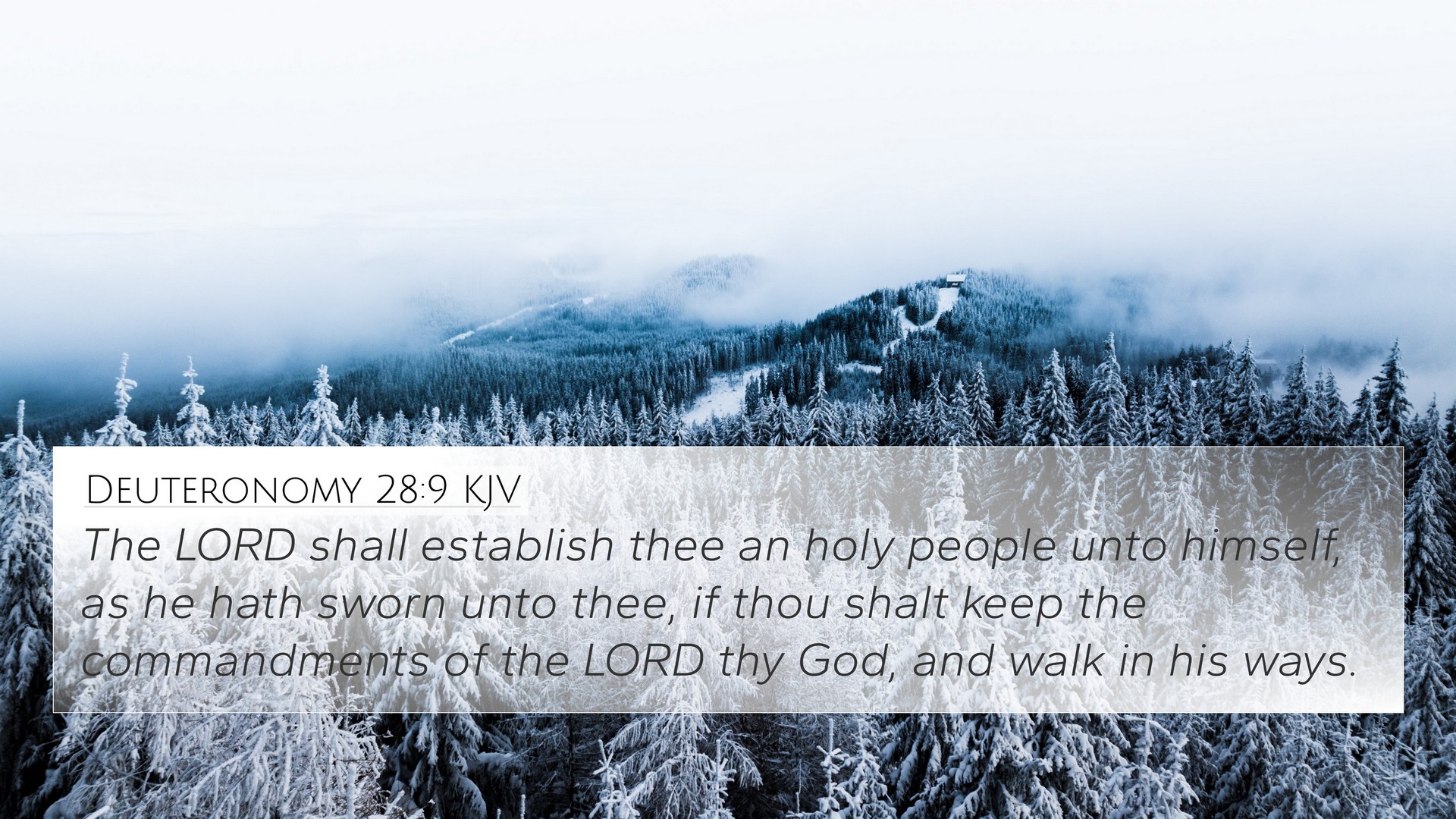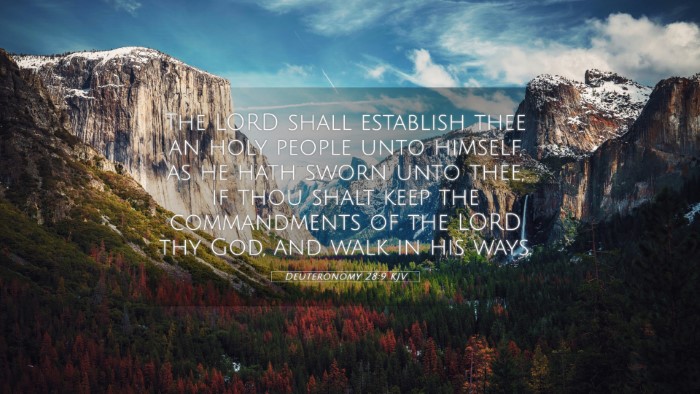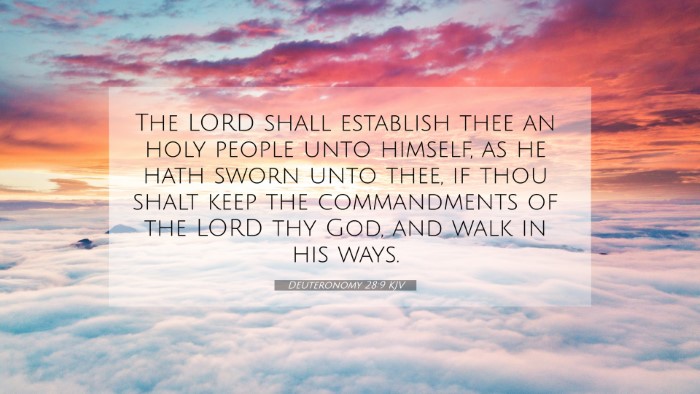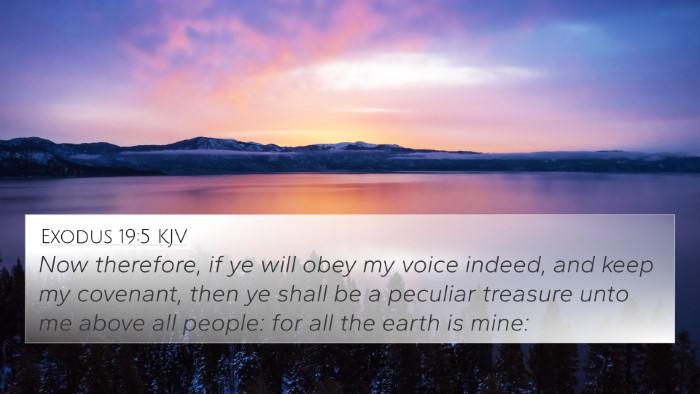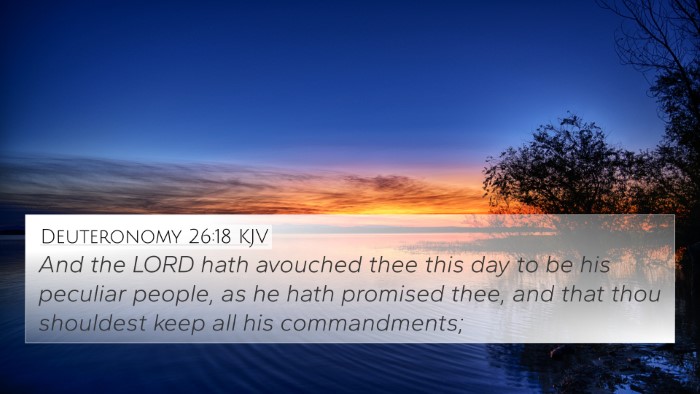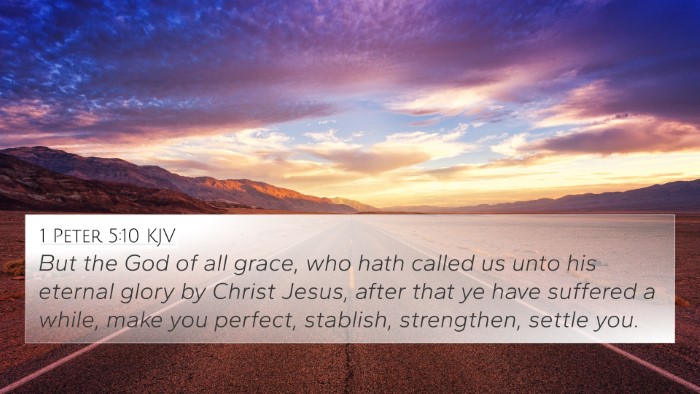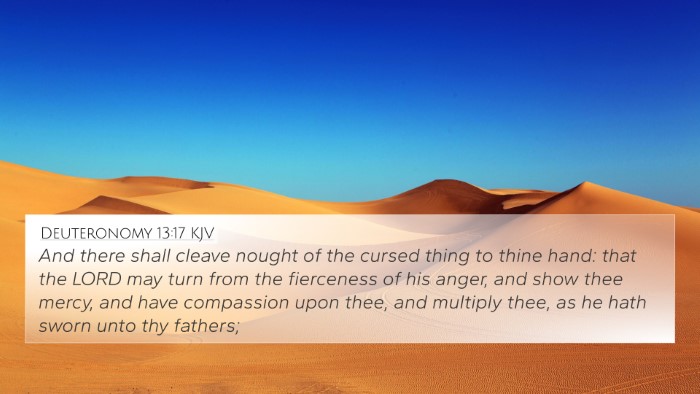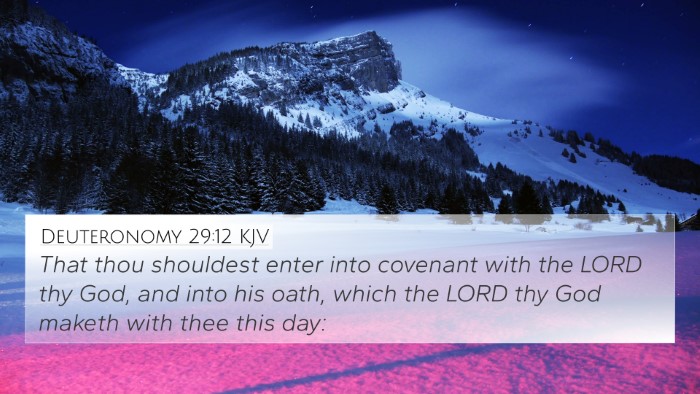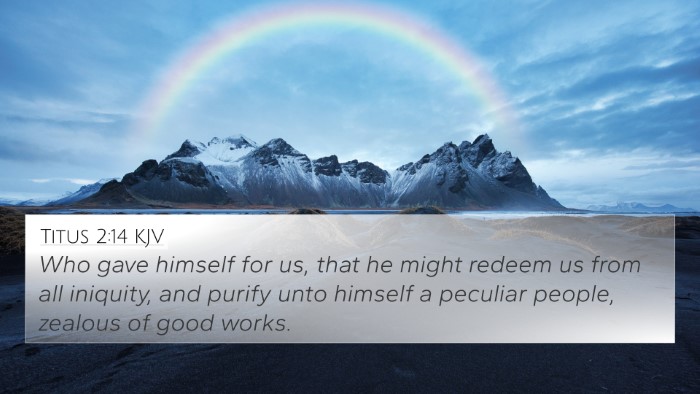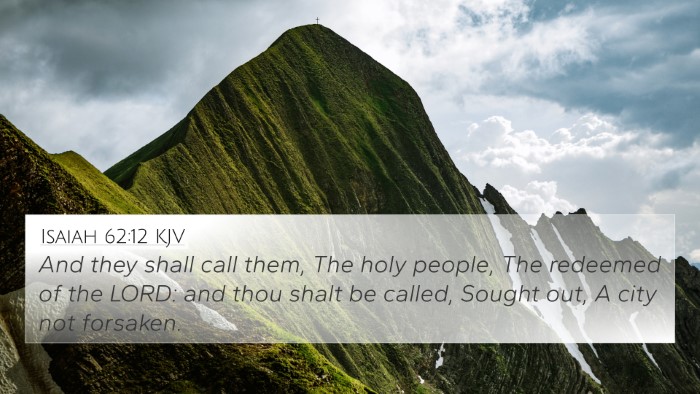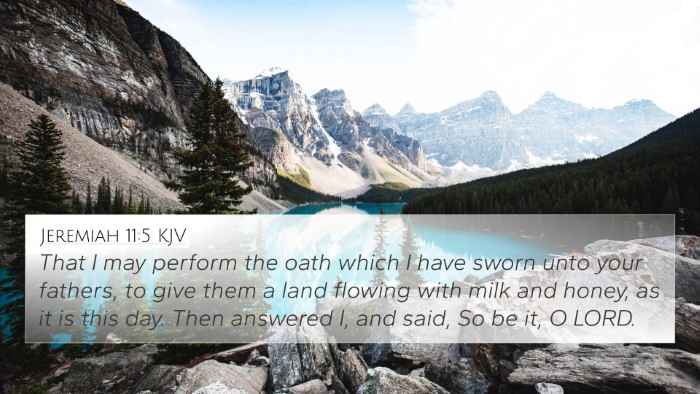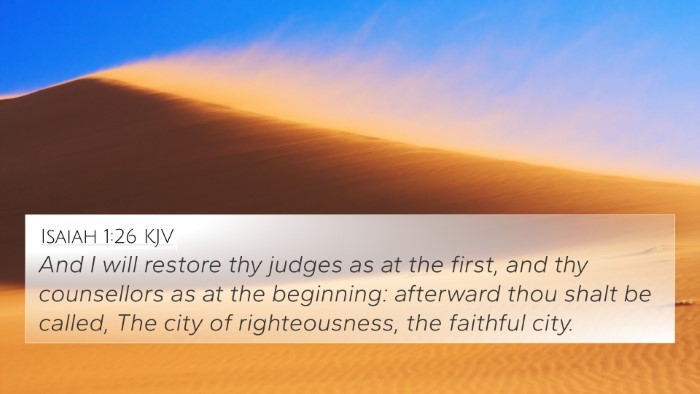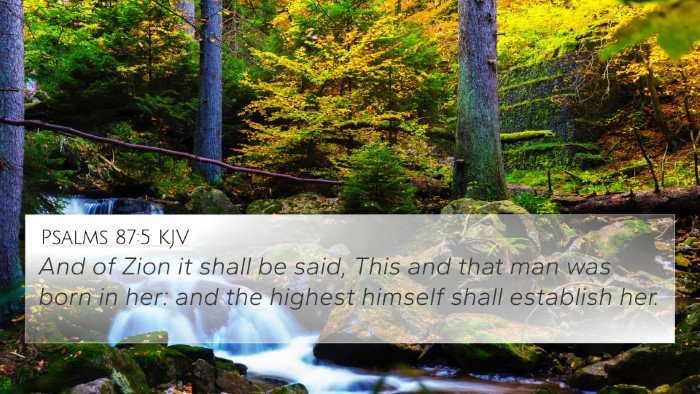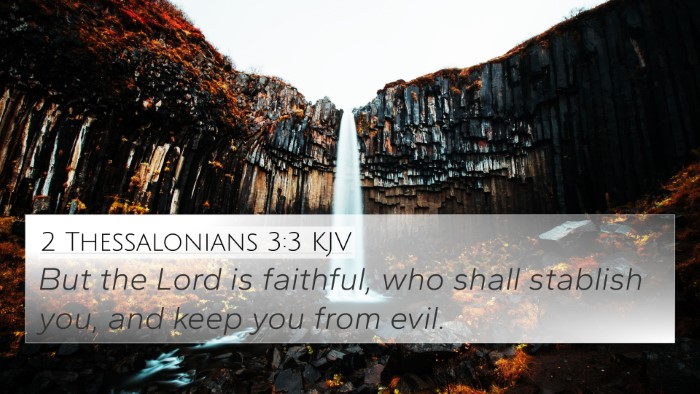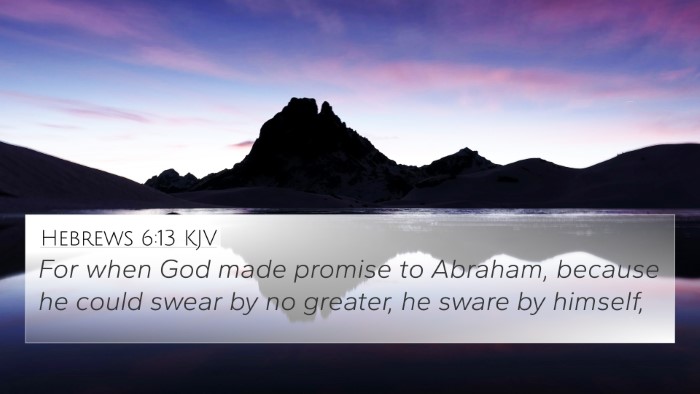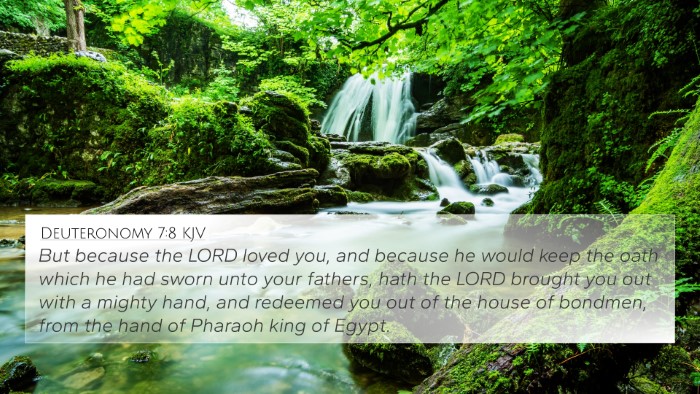Understanding Deuteronomy 28:9
Deuteronomy 28:9 states: "The LORD will establish you as his holy people, as he promised you on oath, if you keep the commands of the LORD your God and walk in obedience to him."
Overview of Deuteronomy 28:9
This verse is part of a larger passage where Moses outlines the blessings that will come to Israel if they obey God's commandments. It emphasizes the idea of God's covenant relationship with His people, focusing on obedience as a key element of receiving divine blessing.
Commentary Insights
Matthew Henry
Matthew Henry notes that in this verse, God promises to establish Israel as His holy people, highlighting the importance of obedience to His laws. He emphasizes the unconditional nature of God's promise, while also making clear that human obedience is necessary to experience the resulting blessings.
Albert Barnes
Albert Barnes elaborates that this establishment as a holy people indicates being set apart for God's purposes and a reflection of His character among the nations. Barnes underscores that this relationship comes with responsibilities; fulfilling God's commandments is essential to maintaining this special status.
Adam Clarke
Adam Clarke further interprets this verse in the context of the covenant between God and Israel. He points out that the term "holy people" suggests a moral and spiritual purity that Israel must maintain, and disobedience could lead to the forfeiture of such a standing.
Thematic Connections
Deuteronomy 28:9 can be linked to several important themes and other Bible verses, emphasizing the significance of obedience and the relationship between God and His people.
Bible Verse Cross-References
- 1 Peter 2:9: Refers to believers as a "royal priesthood," akin to being a holy people.
- Exodus 19:5-6: God commands Israel to be His treasured possession and a kingdom of priests.
- Leviticus 20:26: Illustrates the call to holiness and separation from other nations.
- Jeremiah 7:23: Stresses that obedience is vital for enjoying God’s plans.
- Romans 12:1-2: Encourages believers to present themselves as living sacrifices, embodying obedience to God.
- John 15:10: Jesus speaks about keeping commandments to abide in His love.
- Galatians 5:22-23: Discusses the fruits of the Spirit as a result of living in obedience to God's will.
Understanding Connections Between Bible Verses
The concept of being established as God's people in Deuteronomy is mirrored through various New Testament teachings. The thematic connections provide insights into how the principles of obedience and divine relationship transcend the Old and New Testaments.
Comparative Bible Verse Analysis
By comparing Deuteronomy 28:9 with verses from different biblical books, one can see the continuity of God’s expectations of obedience and the blessings that follow. The blessings described in Deuteronomy serve as a precursor to the ultimate fulfillment found in the New Testament.
Tools for Bible Cross-Referencing
Engaging in a Bible cross-reference guide or a comprehensive resource can enhance understanding of the intricate web of scriptures. By utilizing these tools, one can explore how various biblical texts interrelate and reinforce similar themes.
How to Use Bible Cross-References
To effectively study Bible verses related to Deuteronomy 28:9, readers can utilize a Bible concordance or a digital Bible app that highlights cross-references. This way, one can delve into how different passages connect, allowing for a richer interpretation of scriptural teachings.
Conclusion
Deuteronomy 28:9 serves as a foundational scripture illustrating the covenant between God and His people, underlining the principle that divine blessings are closely tied to obedience. This theme pervades the Bible, making it crucial for readers to engage with cross-references and thematic analysis to fully appreciate its significance within the broader narrative of scripture.
Inter-Biblical Dialogue
The connections made through scriptural cross-referencing not only aid in understanding the individual verse of Deuteronomy 28:9 but also foster an appreciation for the holistic narrative of the Bible. This dialogue between the Old and New Testaments elucidates the significance of God's covenant and the call to holiness that persists through the ages.
